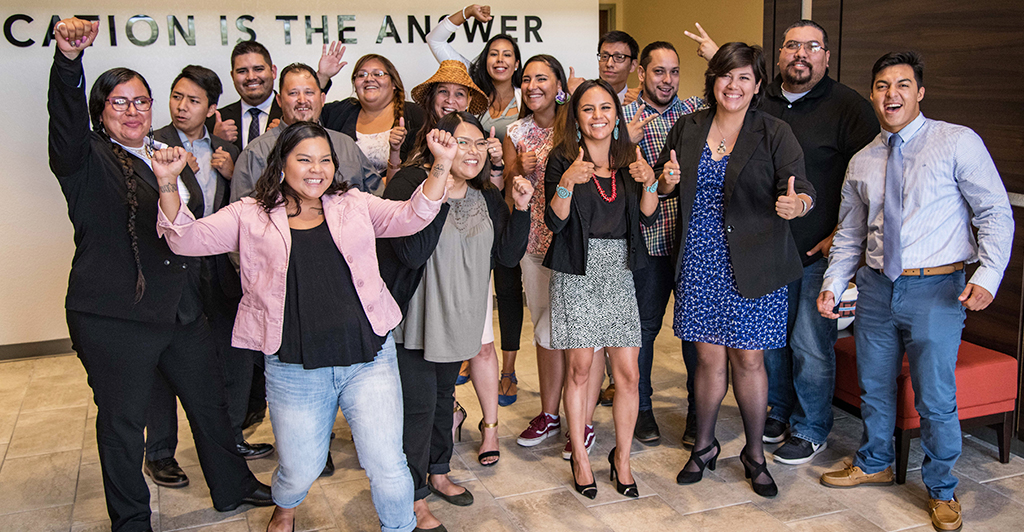We find the actions of the parents in the “Varsity Blues” scandal not only unfair to every hard-working student in our country seeking a quality education, but especially to Native students who come from communities where poverty and unemployment rates are double that of the general population. As a result of these challenges, only 14% of Native people 25 and older have a college degree–less than half the rate of other groups.
As an organization that works tirelessly to create equity for our nation’s most vulnerable communities through education, it is disappointing when the actions of some make our work that much harder. The $500,000 that one set of parents paid to fraudulently ensure their daughter’s spot in college is enough money to support 1,000 Native students complete a year of college. It is even more upsetting because we know how hard Native students with economic and social disadvantages work to earn a spot at a college or university, only to have that opportunity disappear because the spot was bought for a less accomplished student.
Please help those students who need it the most. Give today to the American Indian College Fund.







